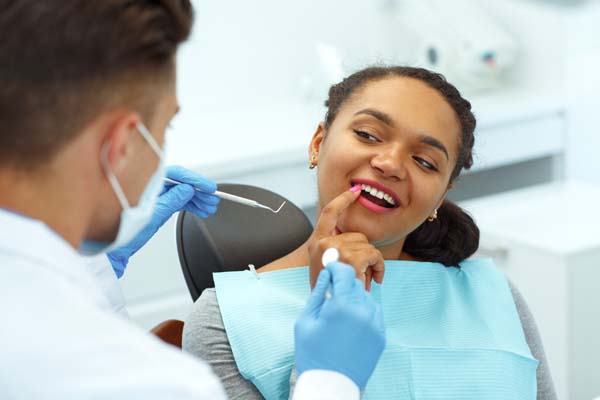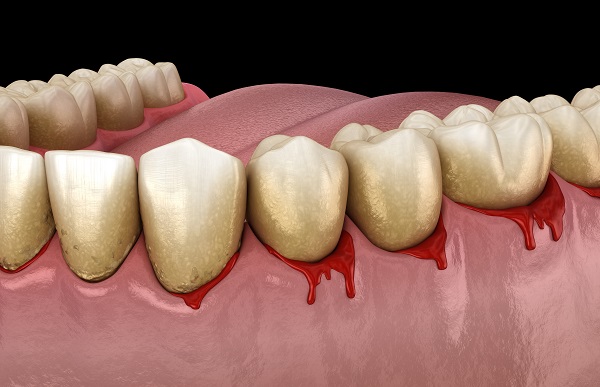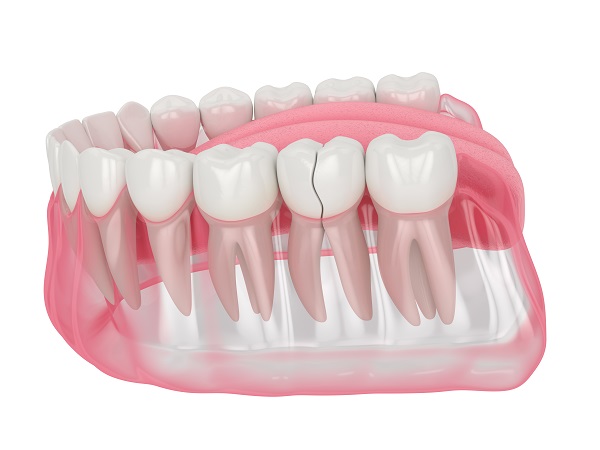A Dentist Explains How to Know Whether You Grind Your Teeth

Do you think you might be grinding your teeth and are looking for a dentist's opinion? Have you ever woken up with a stiff or sore jaw? Do you have a dull, throbbing headache upon waking in the morning?
If so, it may be time for you to visit your dentist. Both of these scenarios are telltale signs that you are grinding your teeth while you sleep. Medically termed bruxism, grinding your teeth can lead to serious oral health issues if not addressed by your dentist.
What is bruxism?
Bruxism, commonly known as teeth grinding, is a condition in which you grind or clench your teeth. This can happen unconsciously while you are awake, or during sleep. In cases of clenching and grinding while asleep, this condition is considered a sleep-related movement disorder. It has been shown that people who have sleep bruxism are more likely to have other sleep disorders, such as snoring or sleep apnea.
How to tell if you grind your teeth
If you suspect you are suffering from bruxism, there are several signs to look out for:
- Tight or sore jaw muscles
- Flattened teeth
- Cracked, chipped, or loose teeth
- Tooth pain or sensitivity
- Dull, achy pain around your ears or temples
- Temporomandibular joint (TMJ) pain, clicking or grinding when opening your mouth
If you are noticing any of these signs or symptoms, the easiest way to confirm whether you are grinding your teeth is by visiting your dentist for an official diagnosis.
Causes of teeth grinding
There are a variety of reasons why people grind their teeth. It is not entirely known what causes bruxism, but it is thought to be due to a combination of physical, psychological and genetic factors. These can include stress and anxiety, an abnormal bite, aggressive or competitive personality types, missing or crooked teeth, other family members with bruxism, or medical disorders such as Parkinson’s disease, epilepsy, gastroesophageal reflux disorder (GERD), or attention-deficit/hyperactivity disorder (ADHD).
Bruxism may also be a side effect of some medications, such as certain antidepressants.
How can your dentist help?
Your dentist is the first person you should visit if you suspect that you are grinding your teeth. During a dental exam, your dentist will look for signs of bruxism such as excessive wear on your teeth, including cracks, chips or loose teeth. Some options to help you reduce or eliminate grinding include:
- Wearing a mouth guard to protect your teeth
- Wearing a splint, which keeps your teeth separated
- Wearing a Mandibular Advancement Device (MAD) to keep your jaw in a fixed position
- Avoid alcohol — alcohol has been shown to intensify grinding during sleep
- Cut back on or avoid foods that contain caffeine
- Use stress management techniques
- Behavioral therapy — training yourself to hold your jaw and mouth in a position to avoid grinding
The good news
The good news is that bruxism, or grinding your teeth, is a very treatable condition. If you suspect that you are grinding your teeth, visit your dentist as soon as possible to discuss your options for reducing or eliminating bruxism. The sooner you catch and treat this condition, the less pain and damage you will endure.
Request an appointment here: https://www.kentlawsondds.com or call Kent B. Lawson DDS at (713) 721-1222 for an appointment in our Houston office.
Check out what others are saying about our services on Yelp: Read our Yelp reviews.
Recent Posts
Gum disease is an infection of the soft tissues within the mouth. Many people suffer from a form of gum disease without even realizing it. The gums often get overlooked during oral hygiene, which can make it easy to miss the signs. Keep reading to learn more about what the signs look like. Outlined below are…
Wondering how dentists repair a cracked tooth? When someone cracks one of their teeth, it can cause minimal or extreme pain. Cracked teeth can also lead to an oral infection, which can spread to nearby areas. Because of this risk, it is essential to visit a dentist for repair. Understanding what can cause a cracked tooth…
Preparing for a wisdom tooth extraction? The procedure often sparks fear in patients because it does involve pulling teeth. However, it is important to know that modern-day technology has allowed for the evolution of better techniques, which reduce pain and recovery time. Nonetheless, it is still important to be familiar with the recovery time and…
Much like a routine visit to the doctor’s office, a dental check-up is a good way to assess how you are doing with oral wellness. It is easy to get busy with life and forget about making this important appointment. However, you should make this a priority for yourself and everyone in your family.A dental…


